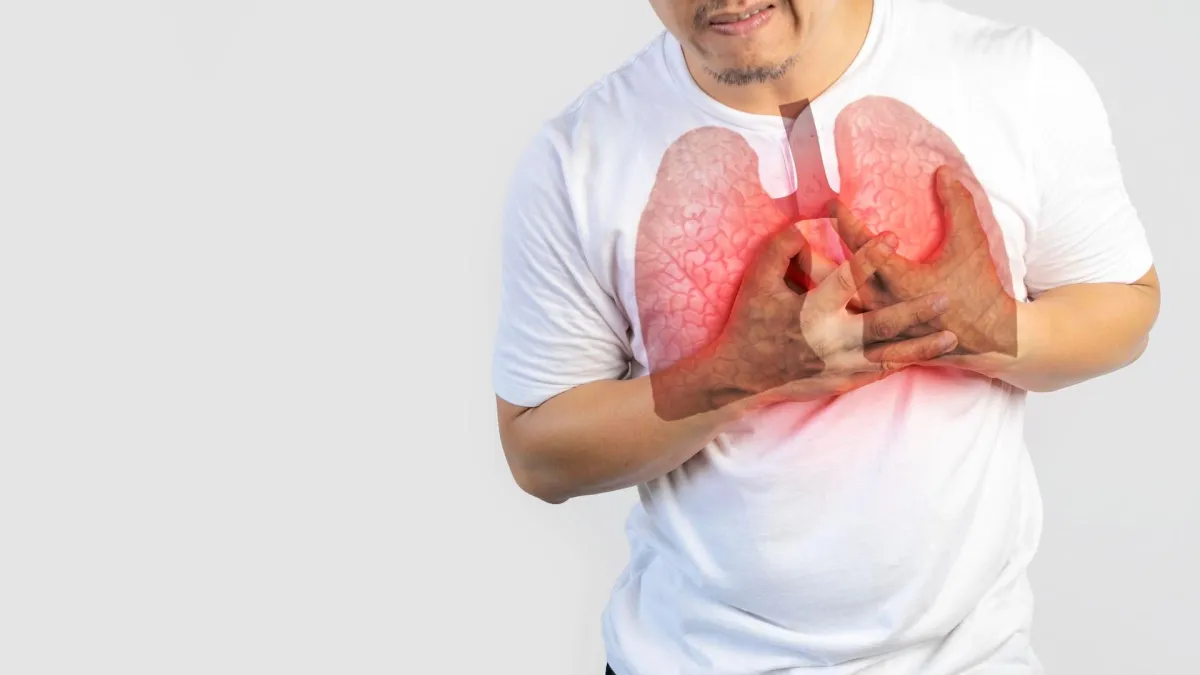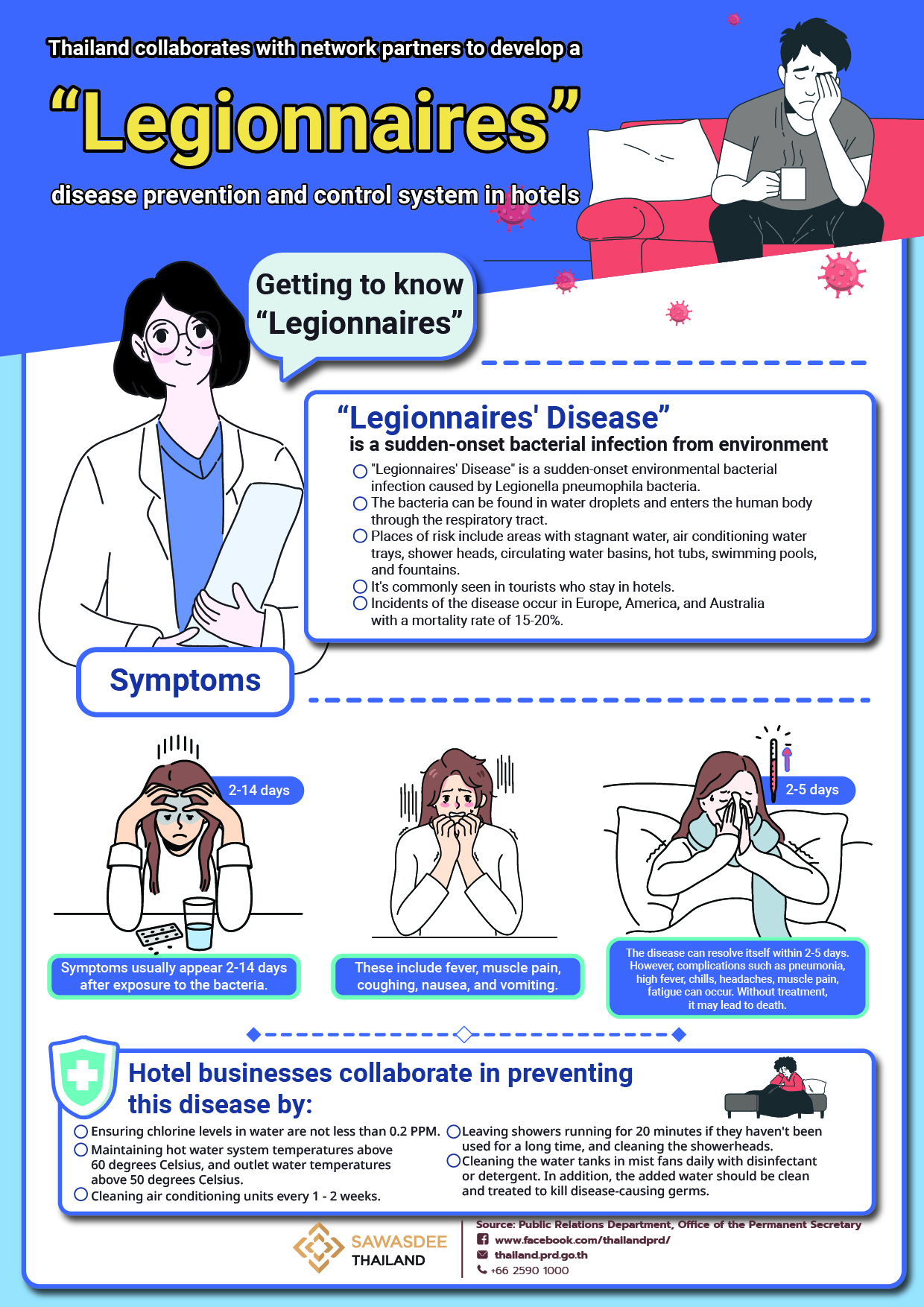
“Legionnaires' Disease” is a sudden-onset bacterial infection caused by the Legionella pneumophila bacteria, which is found in the environment. The bacteria can contaminate water droplets and enter the body through the respiratory tract. Areas of concern include stagnant water, water trays in air conditioning systems, showerheads, water fountains, hot tubs, swimming pools, and water features.
Symptoms of the disease generally manifest within 2 - 14 days after exposure and include fever, muscle pain, cough, and nausea and vomiting. This illness typically resolves itself within 2 - 5 days, but complications can arise, such as pneumonia, high fever, cough, chills, headache, muscle weakness, and fatigue. If left untreated, these symptoms can prove fatal.
This disease is commonly found in tourists staying in hotels. Many countries have established organizations responsible for monitoring and reporting cases of Legionnaires' disease. They publicly share information about hotels with a history of outbreaks online, which can significantly impact the tourism industry's reputation. This disease has been reported in Europe, America, and Australia, with a mortality rate of 15 - 20%.
Following Thailand's decision to open its borders to tourists without requiring quarantine as part of its COVID-19 surveillance and prevention measures, the Urban Disease Control Institute has developed a Legionnaires' disease surveillance and control system for hotel operators in Bangkok. The targeted groups include Thai Hotel Association representatives, hotel managers, officials responsible for water and air conditioning systems in hotels, and public health officials. They are educated about the situation of Legionnaires' disease, disease prevention and control policies, methods for eliminating bacteria in rooms and surrounding environments, and best practices according to environmental health measures for hotel-type businesses.
Hotel businesses collaborate in preventing this disease by:
Data updated on March 4, 2023.
Source: The Public Relations Division of the Permanent Secretary Office, the Ministry of Public Health, 88/20 Moo 4, Talad Kwan, Mueang, Nonthaburi 11000
Tel. +66 2590 1000
For more information 1
For more information 2
